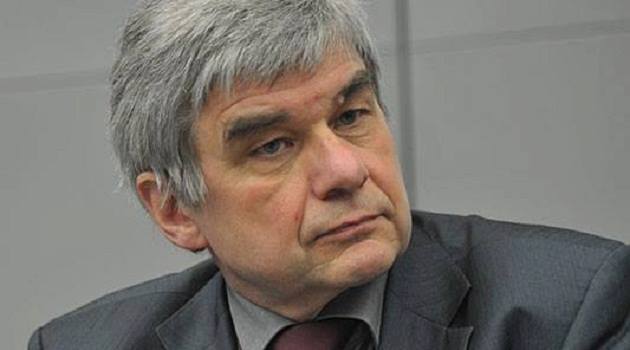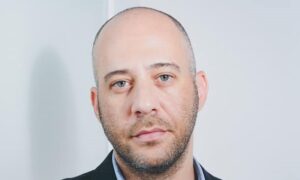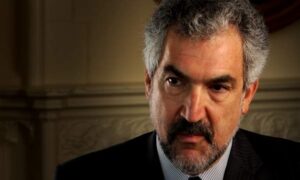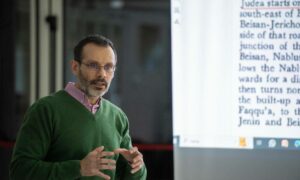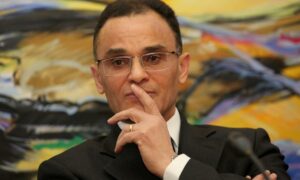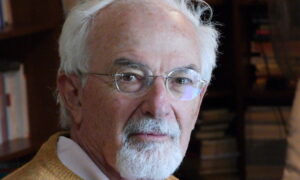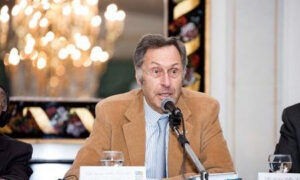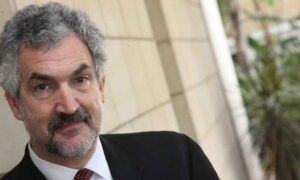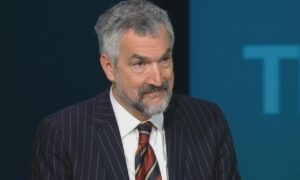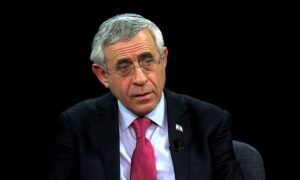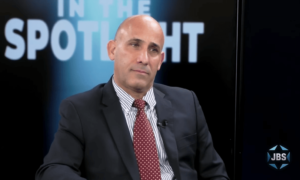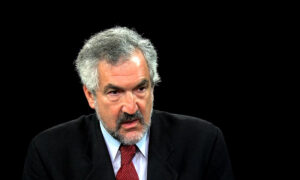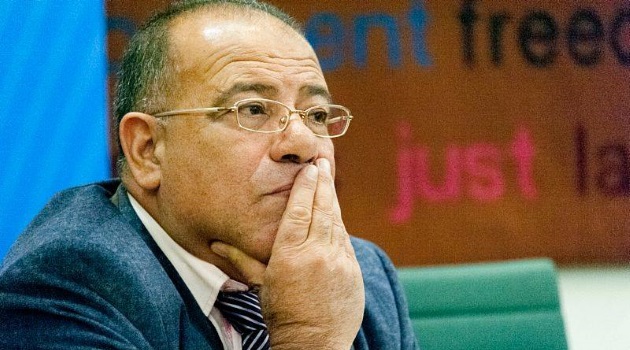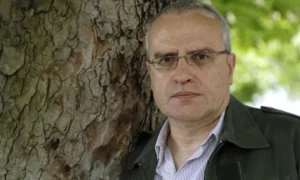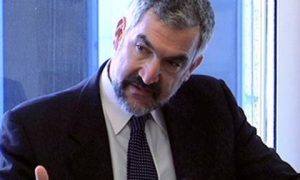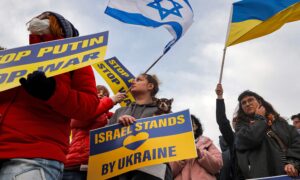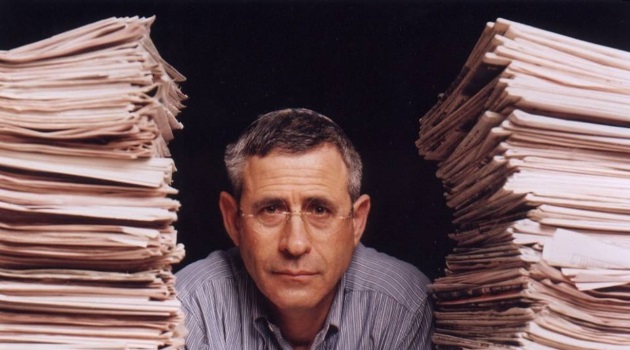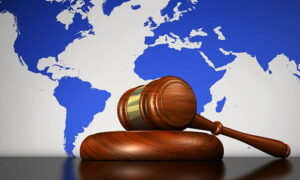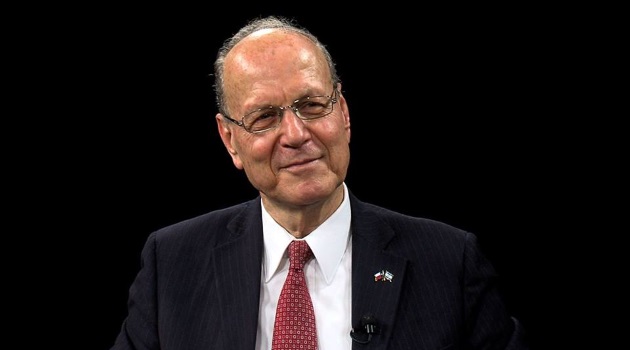Matthias Küntzel, one of the foremost international experts of jihadism has dedicated a good part of his work as a scholar and analyst of the Iranian Weltanschauung which has emerged from the 1979 revolution and still dominates Teheran’s foreign policy, its objectives and its aims. With the usual sharpness and clarity, in this interview to L’Informale he elucidates what are the threats that Iran poses not only for Israel (its main foe together with the United States) but for the stability of the Middle East in its entirety.
Dr. Küntzel, as a result of the war in Syria Iran is expanding its influence in the country and is also approaching Israel’s borders on the Golan Heights. It seems obvious that Iran wants to entrench itself in Syria. What is your personal assessment of the situation?
The situation is highly dangerous, since not only Russia but also the United States – not to mention the Europeans – seem to be accepting the Iranian expansion in Syria. The Iranian regime wants to wipe out Israel. To this end, it has delivered 150,000 rockets to Hezbollah and saved the murderous Assad regime. If the international community now allows this regime to establish itself in Syria and build a new battlefront on the Golan Heights, a new war will become inevitable. No one can expect Israel to accept this hostile mobilization on its northern border.
In his recent visit to Russia, Benjamin Netanyahu stated clearly to Vladimir Putin that Israel won’t allow Iran to expand in Syria in such a way as to pose a major threat to Israel. The recent air strikes by Israel against a chemical weapons factory and a missile site in Syria are more eloquent than any words. Do you think that Russia can be trusted to curb Iranian ambitions in Syria?
No. It is true that Moscow rejects Iran’s war against Israel and advised the Assad regime not to retaliate after the latest Israeli air strike. There are, however, no signs of serious Russian efforts to stop or even push back Iran’s expansion in Syria. Putin is an opportunist. He uses his opponents’ weaknesses and backs those who are currently strong. After Obama proved too weak to implement his “red line” in Syria in 2013, he attacked Ukraine. After Teheran emerged victorious from the atomic talks, he made a military alliance with Teheran in Syria. As long as Israel is the only country fighting Iranian expansionism in Syria, Putin is likely to stay on its pro-Iranian course. If the West as a whole will take serious steps to weaken and isolate Iran, Putin would re-consider his tactical alliance with Teheran.
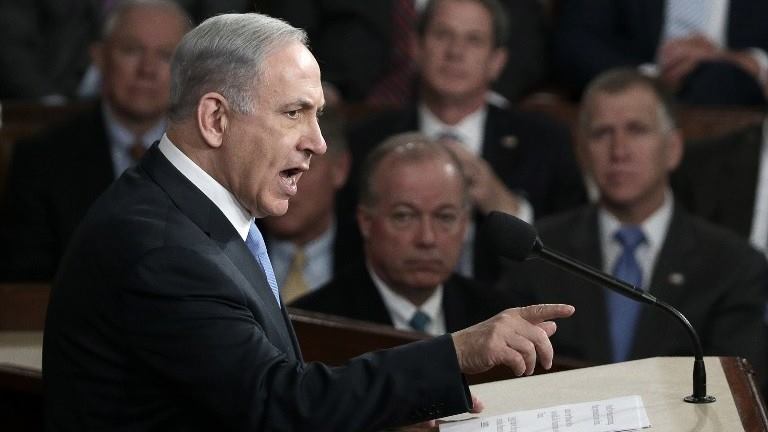 President Trump and after him General James Mattis, Defence Secretary, have stated that Iran is the major threat to the stability of the Middle East and the major sponsor of terrorism. Do you agree with them and if so, why?
President Trump and after him General James Mattis, Defence Secretary, have stated that Iran is the major threat to the stability of the Middle East and the major sponsor of terrorism. Do you agree with them and if so, why?
Although Donald Trump’s overall behavior as US president is a disgrace, he is right on this particular point. For the time being it is true that it is mainly Sunni Islamists that are spreading terror in the name of IS or al-Qaeda. On the state level, however, the situation is different: The Sunni-governed states, including Saudi Arabia, are status quo powers that do not seek revolutionary changes. Iran, on the other hand, pursues a revolutionary foreign policy that includes changing the status quo by military means. Mahdi Mohammad Nia commented on this difference in the Teheran-based journal Iranian Review of Foreign Affairs: “Revolutionary states often do not engage in the cost-benefit analysis that other states do. The main goal of such states is to pursue their revolutionary mission and to construct a particular identity based on a certain set of norms and values. … Hence, this country [Iran – MK] can be considered as a mission-oriented state rather than interest-oriented.” Tehran’s revolutionary mission, however, is Islamist in character. The goal is to submit the whole world to divine Sharia law.
Secondly, Iran alone has “Revolutionary Guards”, which, in the same way as they did with the Lebanese terrorist organization Hezbollah, are forming, training and deploying Shiite militia throughout the region in order to undermine the stability of many regional states. Last but not least, Iran is currently the most powerful “Islamic state” and one of the most resource-rich and technologically advanced countries in the world, making its regime, inspired by the Khomeinist doctrine, all the more dangerous. The majority of the Iranian population meanwhile opposes this religious dictatorship which, however, has perfected the methods of oppression to ensure an apparent “stability”.
In March 2015, Benjamin Netanyahu spoke to the USA Congress. He urgently warned American legislators that the nuclear deal between the USA and Iran was a very bad one. Was he right?
Yes, he was right. There is a special feature of this deal: Even if Iran complies with all of its provisions, it will end up as a de-facto nuclear weapons state. In eight to thirteen years, all current restrictions will be eliminated – then the regime will be able to produce bombs; this time, with the blessing of the international community. From the outset this deal was a gamble on the future. The five permanent members of the Security Council plus Germany have bet that, if Iran’s atomic wishes are fulfilled – partly in the short term, partly in the medium term -, the so-called “moderates” will gain the upper hand and Iran will not only open up to the West but also play a stabilizing role in the region, thus perhaps even losing its interest in nuclear weapons. This bet was based on a complete misjudgement of the ideological premises that determine Tehran’s action. Meanwhile, reality has shown what a bad bet the West has made: The Iranian regime has intensified its aggressive actions towards Israel; it has taken over Lebanon through its proxy, Hezbollah; Syria is currently being transformed into an Iranian protectorate; and Iraq and Yemen have been destabilized through Iranian-backed Shiite forces.
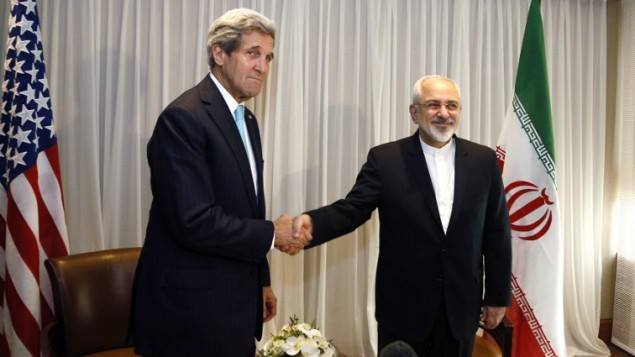 What weight do you give to the argument according to which a nuclear Iran would act very much as the Soviet Union did during the Cold War, knowing that any use of nuclear weapons against Israel would immediately trigger a massive destructive response?
What weight do you give to the argument according to which a nuclear Iran would act very much as the Soviet Union did during the Cold War, knowing that any use of nuclear weapons against Israel would immediately trigger a massive destructive response?
The logic of deterrence might also work in the case of Iran. But it is by no means certain. In December 2001, former Iranian president Rafsanjani said he considered a nuclear attack on Israel to be “not irrational”, even if huge numbers of Iranian Muslims were to die as a result. For, according to Rafsanjani’s way of thinking, Israel would be definitively destroyed, while the Islamic world as a whole would only be harmed. This “reasoning” shows how little purchase “deterrence” has on the Khomeinists. The Cold War balance of terror was based on the primacy of this world: because Russians and Americans wanted to survive, the threat of retaliatory destruction deterred them from adventurism. Khamenei’s teaching, on the other hand, prioritizes the hereafter. The slogan “You love life and we love death!” is the essence of this teaching. A person who looks forward to the rewards of a martyr’s death is not to be deterred.
According to Daniel Pipes the cure for Islamism is moderate Islam. According to Mordechai Kedar, this distinction is just a Western construct. Islam, he says, is just Islam, there are Muslims who choose to enact it on others and those who choose to enact it only upon themselves. What is your opinion?
Kedar says: “What we have is not moderate Islam versus radical Islam, what we have are radical Muslims versus moderate Muslims.” I agree with both aspects of this statement: First that there is only one Islam and one Koran with verses that encourage Islamist terrorists and verses that confirm the opinion of moderate Muslims. I also agree that we have to distinguish between radical Muslims and secularized or moderate Muslims. Secularized Muslims regard religion as a private matter, giving greater weight to state laws than religious commandments. The radical Islamists, however, have the advantage that they are able to practice terror based on verses of the Koran in order to intimidate the moderates. That is why it is important that we non-Muslims strengthen the moderates in their resistance against Islamism.
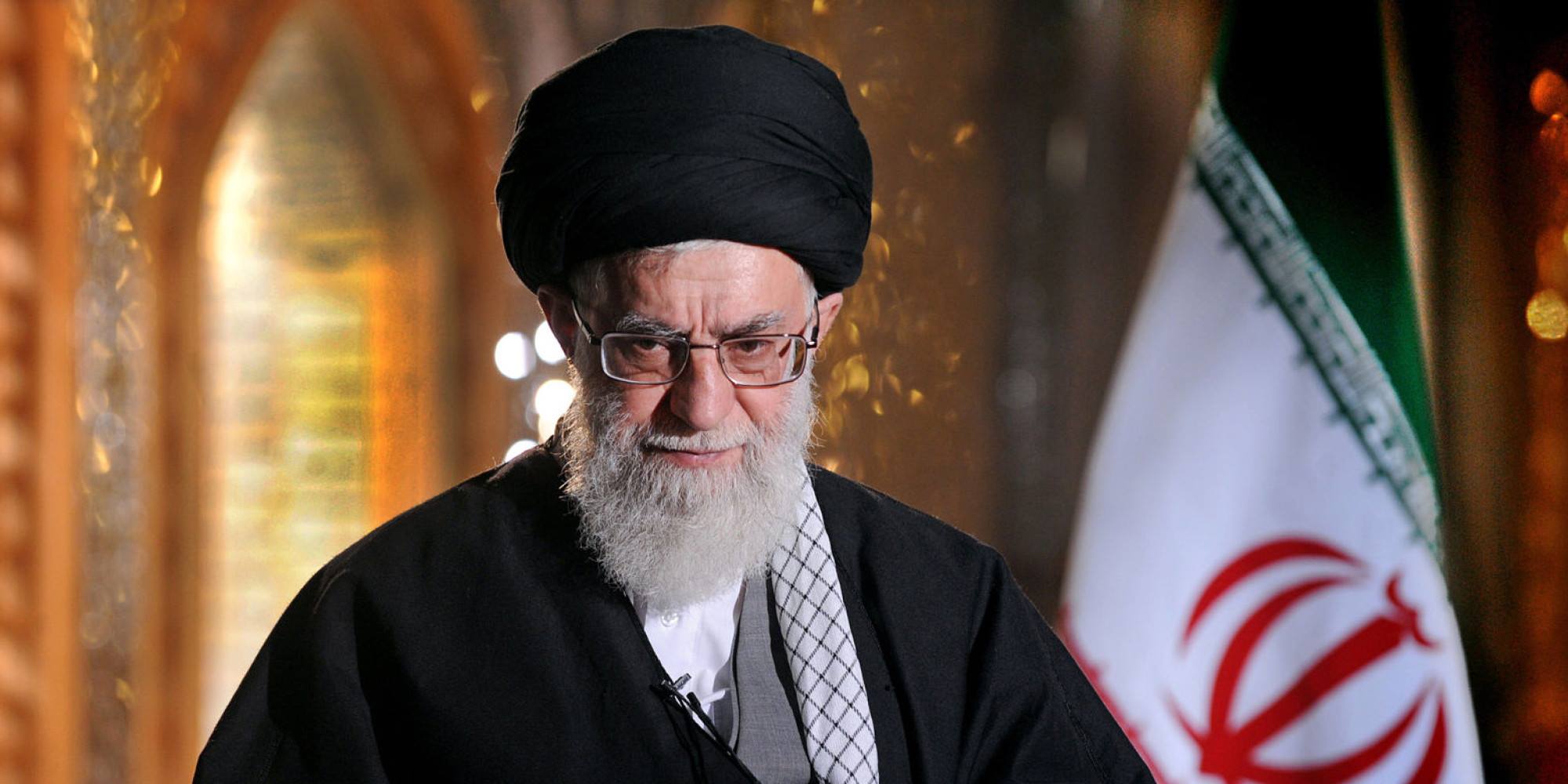 A few days ago we passed the anniversary of 9/11. In your seminal study, Jihad And Jew-Hatred: Islamism, Nazism And The Roots of 9/11, you showed the role that Jew-hatred played in the terrorists’ motivation for the Twin Towers attack. To what extent does antisemitism still play a role in Islamic jihad?
A few days ago we passed the anniversary of 9/11. In your seminal study, Jihad And Jew-Hatred: Islamism, Nazism And The Roots of 9/11, you showed the role that Jew-hatred played in the terrorists’ motivation for the Twin Towers attack. To what extent does antisemitism still play a role in Islamic jihad?
Antisemitism remains a central pillar of jihadist ideology. It is a well-known fact that antisemitic ideologists from the very beginning identified Jews with the threatening aspects of modernity. Amin el-Husseini, the Mufti of Jerusalem and one of the founding fathers of Islamism (together with Hassan al-Banna and Izz ad-Din al-Qassam), was not only a radical Jew-hater but at the same time the most outspoken critic of any Islamic modernization. This interrelationship between antisemitism and anti-modernism also accounts for the attraction of the antisemitic tract The Protocols of the Elders of Zion not only among Jihadists but throughout the Muslim world. The text is designed to discredit liberalism: in order to advance the combating of individual liberties, the latter are denounced as the essential tool of a global Jewish conspiracy.
In one essay of yours, ‘Tehran’s Efforts to Mobilize Antisemitism: The Global Impact’, you write, “Iran’s antisemitism is a revolutionary antisemitism and Iran’s foreign policy is a revolutionary policy. Its scope is global, its program chiliastic and its goal revolutionary”. Would you like to expand on this?
Its scope is global: This truth is not only embodied in the emblem of the Islamic Republic – the word “Allah” written in Arabic script so as to form a stylized globe – but is also dictated by Iran’s constitution, which outlines “the country’s foreign policy on the basis of the Islamic criteria: fraternal alignment towards all Moslems and unsparing support” for “any rightful struggle of the weak against the strong on the face of the globe.”
Its program is chiliastic: Ali Khamenei describes the Islamic Revolution as “the turning point in modern world history” and he adds: “Our historical movement is creating a new civilization.” The creation of this new civilization depends – as always – on the annihilation of its enemies; in this case Israel and the United States. Regardless of any day-to-day pragmatism, Iran’s foreign policy is still inspired by this kind of expectancy, based on an alleged spiritual superiority.
Its goal is revolutionary: I referred to this earlier. Many hoped that, under Rouhani’s presidency, Iran would enter a more pragmatic phase in which considerations of national interest would be prioritized over mission-oriented considerations. However, even Mohammad Javad Zarif, the Iranian Foreign Minister and figurehead of an alleged moderation, has rejected this assumption. “We are claimants of a mission, which has a global dimension,” he wrote in Farsi in his memoirs, published in early 2014. “We have defined a global vocation, both in the Constitution and in the ultimate objectives of the Islamic revolution … I believe that we do not exist without our revolutionary goals.” It is thus not the technology that makes the present and future Iranian nuclear program so dangerous – and arguably even more dangerous than its North Korean forerunner – but the ideological context within which it arises: Only Iran combines the Shiite fantasy of religious providence with the physics of mass destruction. Here, we find, for the first time since the splitting of the atom, the destructive force of the bomb linked to the fury of a holy war.

